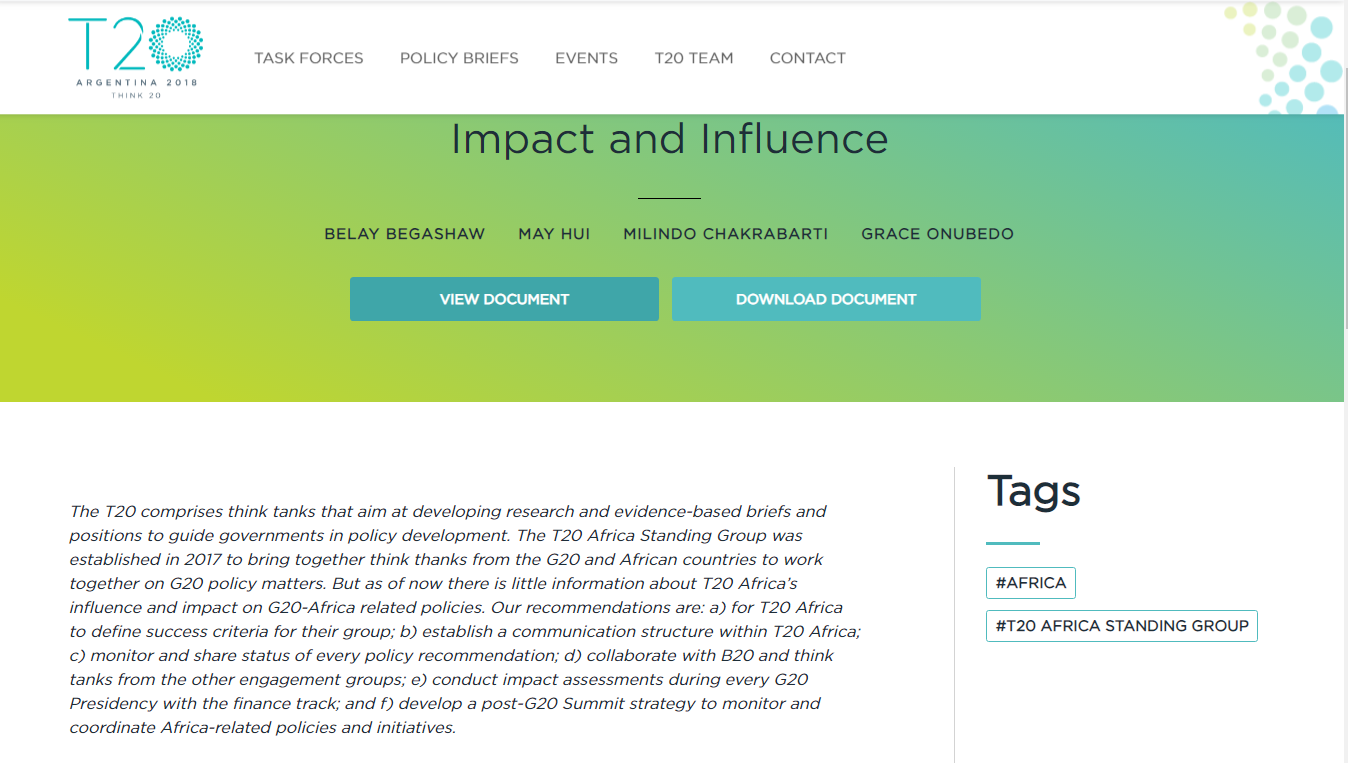The T20 comprises think tanks that aim at developing research and evidence-based briefs and positions to guide governments in policy development. The T20 Africa Standing Group was established in 2017 to bring together think thanks from the G20 and African countries to work together on G20 policy matters. But as of now there is little information about T20 Africa’s influence and impact on G20-Africa related policies. Our recommendations are:
a) for T20 Africa to define success criteria for their group; b) establish a communication structure within T20 Africa; c) monitor and share status of every policy recommendation; d) collaborate with B20 and think tanks from the other engagement groups; e) conduct impact assessments during every G20 Presidency with the finance track; and f) develop a post-G20 Summit strategy to monitor and coordinate Africa-related policies and initiatives.


